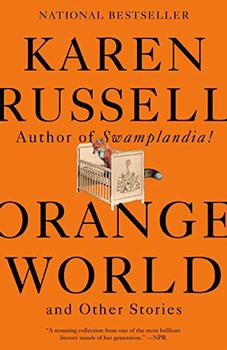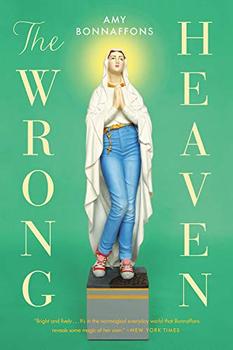Summary | Excerpt | Reviews | Beyond the book | Read-Alikes | Genres & Themes | Author Bio

In Ashleigh Bryant Phillips' debut story collection, Sleepovers, it can be difficult to keep tabs on all the main characters, a number of whom appear as first-person narrators. This isn't to say that they aren't distinct and memorable, only that many of the stories feel inextricably linked through a common underlying intimacy that pulls the reader into the flow of a collective "I."
Phillips creates this intimacy through a unique, contemporary take on the Southern Gothic literary tradition that includes the unblinking, matter-of-fact depiction of truly disturbing elements (such as suicide and domestic abuse) but also a similar treatment of details that are simply of a personal or private nature. Narrators barge into beginnings abruptly and unselfconsciously, making their intentions and situations immediately clear. One story, "Mind Craft," starts with the sentence "I was masturbating when Cole knocked on my door and told me Queenie had bit him." In the rather self-explanatory "You Go Into the ABC Store and the Saleslady Says," the narrator aggressively commences, "Now you listen. Do you believe in ghosts? Because I'mma tell you right now they exist." "The Bass," in which the main character appears to be struggling with suicidal despair, soberly begins, "I know I can get better if I want to. Everybody can get better if they want to."
These characters, who are generally from rural areas and exist between the promised land of recent technology and the murkier realms of nature and spirituality, are often some combination of isolated, heartbroken and grief-stricken. When their stories are funny, they are very funny, but the offbeat parts of their experiences and reflections are mixed into profound personal and existential meditations. The narrator of "Mind Craft" mourns her parents' separation while having a sexual fantasy about a Walmart employee who helps her find the video game Minecraft. In the similar-sounding but quite different plot line of "The Virgin," the main character deals with her loneliness by fabricating a relationship with the Apple store worker who replaces her iPhone. In "The Chopping Block," a woman recalls and recites lines of poetry by Sylvia Plath as she struggles with a past breakup and the absence of several deceased family members, all while having to put up with her sister's obnoxious boyfriend in the immediate present.
Phillips exercises freedom from time, space and reality with discretion and precision, and sometimes with little warning. People may suddenly fall in love, die of old age, give birth or lose a limb in the space of a single sentence before a story reverts to its normal pacing. Characters return from the grave and animals are anthropomorphized; both of these elements appear in the frighteningly bizarre story "The Locket," in which a 60-year-old pool custodian seeks to become best friends with a teenage girl at the behest of her old best friend, Norma, who is not only dead but also a horse. However, just as the odder details in Sleepovers are not simply intended to grab the reader's attention, supernatural occurrences are never exactly the point of a story; if anything, they serve to enhance the gritty, realistic world of the book, where the sting of loneliness and the endless possibilities of desire exist side by side.
While many of the characters in the collection are isolated, Phillips creates the impression that they are never truly alone, outlining the imperfect, delicate ties that exist between them and the universe around them—whether familial, romantic, neighborly or cosmic. She also draws individual experiences with such intense vulnerability that they give way to a sense of collective human consciousness, engaging the reader in a kind of communion with them. This sense is so powerful that even when the stories lose momentum or appear rough-edged in their construction, as they sometimes do, their high points are often exquisite. Sleepovers is a breathtaking, evocative debut and an exciting literary journey.
![]() This review
first ran in the June 24, 2020
issue of BookBrowse Recommends.
This review
first ran in the June 24, 2020
issue of BookBrowse Recommends.

If you liked Sleepovers, try these:

Orange World and Other Stories
by Karen Russell
Published 2020
A stunning new collection of short fiction that showcases Karen Russell's extraordinary, irresistible gifts of language and imagination.

by Amy Bonnaffons
Published 2020
For fans of George Saunders and Karen Russell, an "amazing, wildly inventive" collection of stories that straddles the line between the real and the fantastical.
Your guide toexceptional books
BookBrowse seeks out and recommends the best in contemporary fiction and nonfiction—books that not only engage and entertain but also deepen our understanding of ourselves and the world around us.